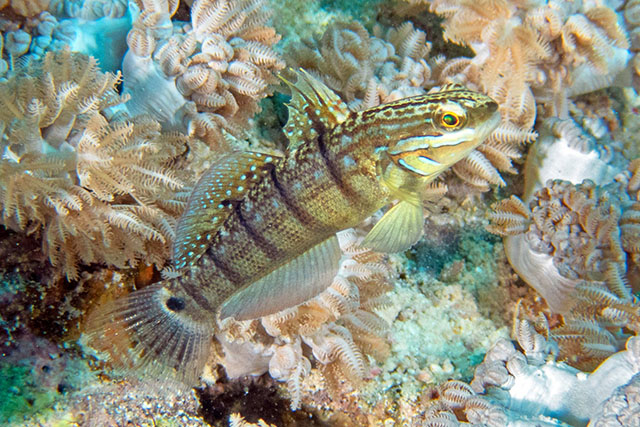| Gobiidae (Gobies), subfamily: Gobiinae |
| 18 cm SL (male/unsexed) |
|
reef-associated; brackish; marine; depth range 10 - 20 m |
| Indo-West Pacific: Red Sea and East Africa south to Durban (South Africa), including most islands in the western Indian Ocean islands; Indonesia, Australia and South Pacific islands. Also known from Japan, Philippines (Ref. 2798) and Persian Gulf (Ref. 68964) |
|
Dorsal spines (total): 7-7; Dorsal soft rays (total): 13-15; Anal spines: 1-1; Anal soft rays: 12-14. Males with 3 black spots near base of 2nd dorsal fin and round spots on cheek; females with brown-edged band from upper lip to upper operculum (Ref. 2798). |
| Epibenthic and littoral, entering estuaries and lagoons (Ref. 4343). Usually seen in pairs, hovering a short distance above the substratum. Monogamous (Ref. 52884). t builds its burrow in sand or silty sand by moving out mouthfuls of sediment (Ref. 11441). Maximum depth reported taken from Ref. 9773. |
|
Least Concern (LC); Date assessed: 25 June 2018 Ref. (130435)
|
| harmless |
Source and more info: www.fishbase.org. For personal, classroom, and other internal use only. Not for publication.

